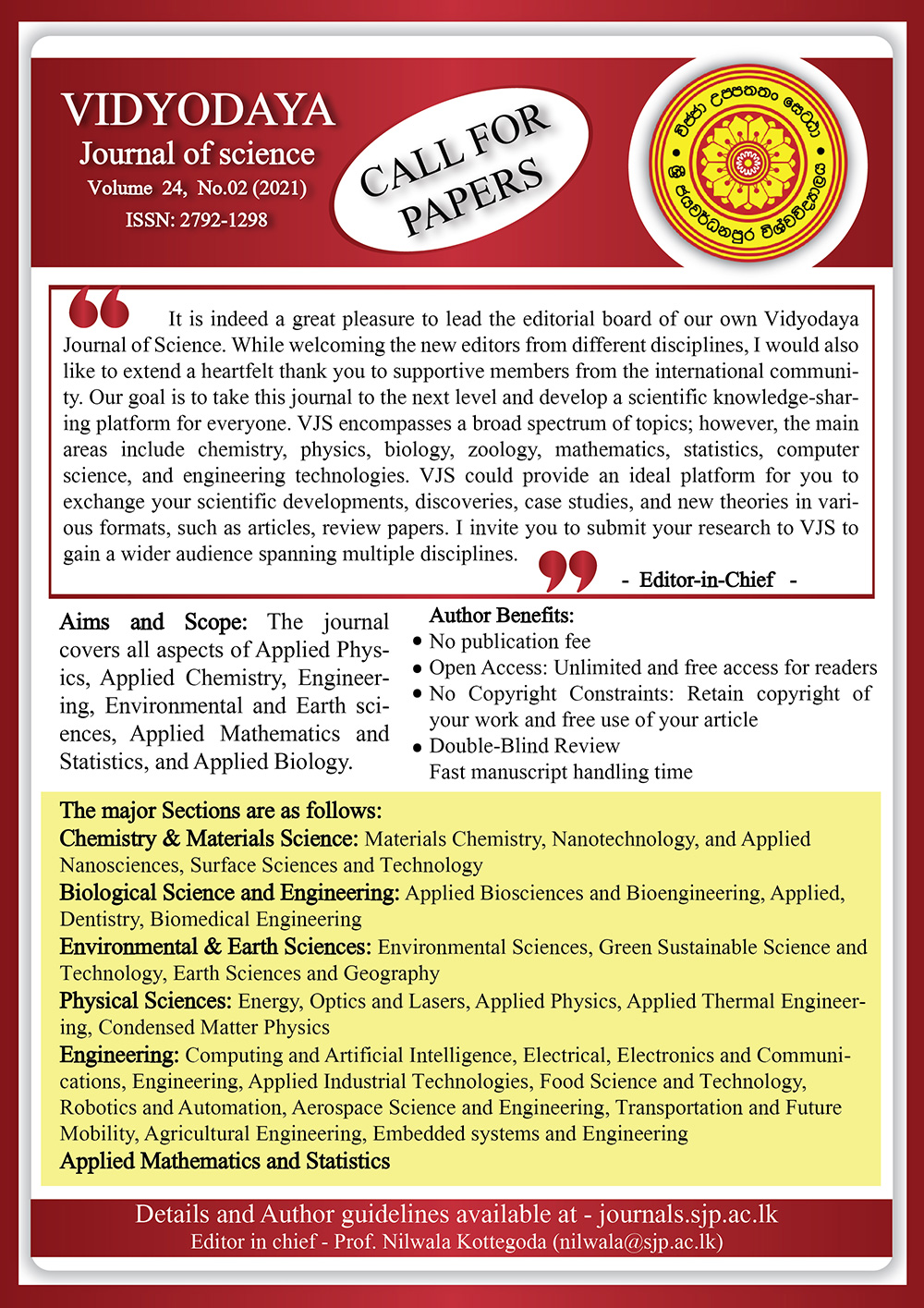Study of the Effects of Exercise and Food Additive Monosodium Glutamate on Life Span Using Caenorhabditis elegans
DOI:
https://doi.org/10.31357/vjs.v21i1.3607Abstract
Human health and life span depend on the quality and the quantity of diet. Since it is difficult to evaluate the importance of specific diet that exerts on health and life expectancy using human, a simple model organism Caenorhabditis elegans was used. The main objective of this study was to evaluate the effect of food additive monosodium glutamate (MSG) and exercise on lifespan. Wild type and CB1370 strains of C. elegans were grown in nematode growth medium (NGM) plates seeded with E. coli OP50. Separate NGM plates were prepared with different concentrations of MSG and agar. An increased concentration of agar was used to exercise the worm population. The population was scored on daily basis until the whole population was dead. Final data were analyzed using OASIS (Online Application for Survival Analysis) and life span curves were generated. The lowest MSG concentration (0.05 mM) declined the mean life span of N2 by 13.77% (P<0.05). With increasing MSG concentration 5 mM, 20 mM and 24 mM the mean life span is further decreased by 16.83% (P<0.05). In the exercise gradient experiment although the percentage life span changes were positive and significant, they were not reproducible. Overall the present study suggests that MSG exerts a significant reduction in C. elegans lifespan and the gene daf-2 which is mutated in CB1370 strain has an impact on this negative effect caused by MSG to the life span. Since C. elegans share 80% homology to human, there is a possibility to have a similar effect of MSG on human lifespan and further experiments would reveal the validity of this hypothesis.
Key words: exercise, food additive, monosodium glutamate, lifespan



